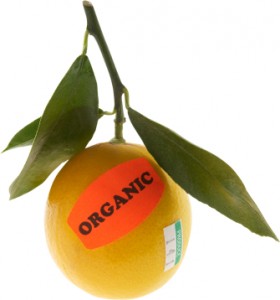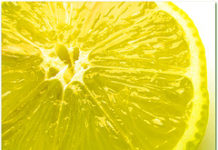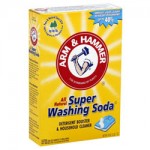

By Adria Vasil, author of Ecoholic: Your Guide to the Most Environmentally Friendly Information, Products & Services
Is it just me or has grocery shopping grown seriously confusing? There’s a maze of food labels out there, all trying to convince you that a pack of cookies or a bag of breaded chicken tenders is healthier for you and the planet than its competition. Trouble is, it can be impossible to tell what they really mean and whether anyone’s even monitoring them for accuracy. So which ones are government regulated and which ones are whipped up by anyone with a brick of tofu and a dream? Here’s a breakdown of some of them.
Natural: Think this term is regulated? Guess again. You could sell a box of cereal loaded with chemicals, put the word natural on the front and no one would stop you. Unless you’re talking meat. Animal products labeled with the term can’t have artificial flavoring, coloring or chemical preservatives but it can still be raised pretty unnaturally on factory farms.
Naturally Raised (meat): You’d assume naturally raised meat would imply that a cow/pig/chicken was raised the way nature intended (unconfined, eating a “natural” diet). Well, the federal government’s new voluntary standard only guarantees that no growth hormones or antibiotics were used and that no animal by-products were fed to the animals. Of course, some “naturally raised” meat is also free range, but it’s not mandatory.
Certified Naturally Grown: Like organic but more grassroots. A band of small farmers that couldn’t afford the big bucks it takes to go certified organic started this indie label. Its standards are pretty on par with the USDA organic program though some of its standards are actually stricter.
Organic: Unless you see a little certification symbol on there, there’s no way to know what you’re eating is truly organic (a.k.a. free of chemical pesticides/synthetic fertilizers/hormones/antibiotics/genetically engineered ingredients and other big baddies).
USDA organic: Food products with this government seal have to be at least 95% certified organic. That means 5% of ingredients can come from an approved-list of synthetics, including the latest controversial addition: synthetic fatty acids in organic baby food.
100% Certified Organic: The purest in the country. No synthetic inputs should be snuck in.
Certified Pesticide Residue-Free: This doesn’t mean pesticides weren’t sprayed on fields. No, no, it just tells you that any traces of chemical bug killers have to fall below a set level for each pesticide.
Biodynamic: A lot like certified organic except a dollop more new agey. Farmers plant and pick in line with the cycles of the cosmos and prepare crystal tinctures for their crops. Definitely legit when certified by overseers like Demeter.
Cage-free: No outdoor access for cage-free hens, though they should be allowed to run around open-concept barns with wire-grid floors. Of course, it’s all hypothetical since no one’s overseeing this label.
Free-range: These cluckers might get to see a little daylight but for how long? One hour last month? The USDA hasn’t created a minimum standard.
Certified Humane Raised and Handled: This label comes courtesy of the SPCA (Society for the Protection of Animals) so you can bet your chicken wasn’t caged and that your dairy wasn’t pumped full of growth hormones. All farms are inspected.
United Egg Producers Certified (formerly Animal Care Certified): You’ll spot this label on 80% of egg cartons, but animal advocates say that birds are still subject to crammed laying cages, beak trimming and forced molting (underfeeding birds to prolong egg laying). No wonder the Federal Trade Commission forced United Egg Producers to drop its misleading Animal Care Certified logo back in 2005.
By Adria Vasil, author of Ecoholic: Your Guide to the Most Environmentally Friendly Information, Products & Services
For a complete breakdown of even more food labels, pick up a copy of Ecoholic: Your Guide to the Most Environmentally Friendly Information, Products and Services. www.ecoholicnation.com
©2009 Adria Vasil, author of Ecoholic: Your Guide to the Most Environmentally Friendly Information, Products & Services
Author Bio
Adria Vasil, author of Ecoholic: Your Guide to the Most Environmentally Friendly Information, Products & Services, is a best-selling author and journalist.




Terrific that you covered this topic! There’s another label your readers should know about. It’s Animal Welfare Approved.
http://www.AnimalWelfareApproved.org
The Animal Welfare Approved program audits and certifies family farms that utilize high-welfare methods of farming. Farmers benefit from having a third-party affirmation of their practices and consumers benefit by knowing that the label means what it says.
What Does the AWA Seal Mean for Consumers?
Animals are raised outdoors on pasture or range on true family farms with the “most stringent” welfare standards according to the World Society for the Protection of Animals in both 2008 and 2009 reports. The standards have been developed in collaboration with scientists, veterinarians, researchers and farmers and incorporate best practice and recent research. Annual audits by experts in the field cover birth to slaughter.
[img]http://www.animalwelfareapproved.org/wp-content/uploads/2009/06/AWAlogoFacebook-test.jpg[/img]
Comments are closed.